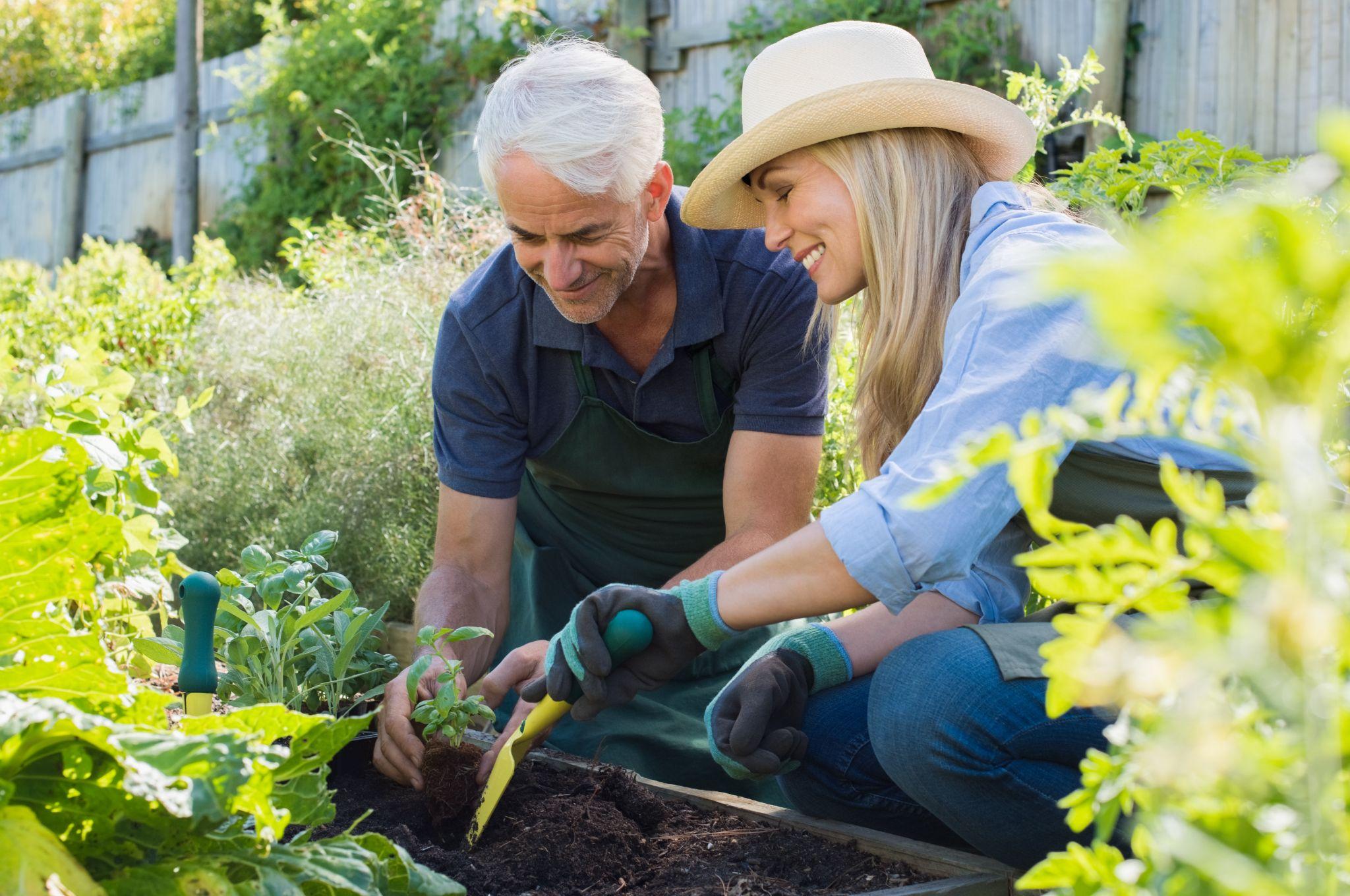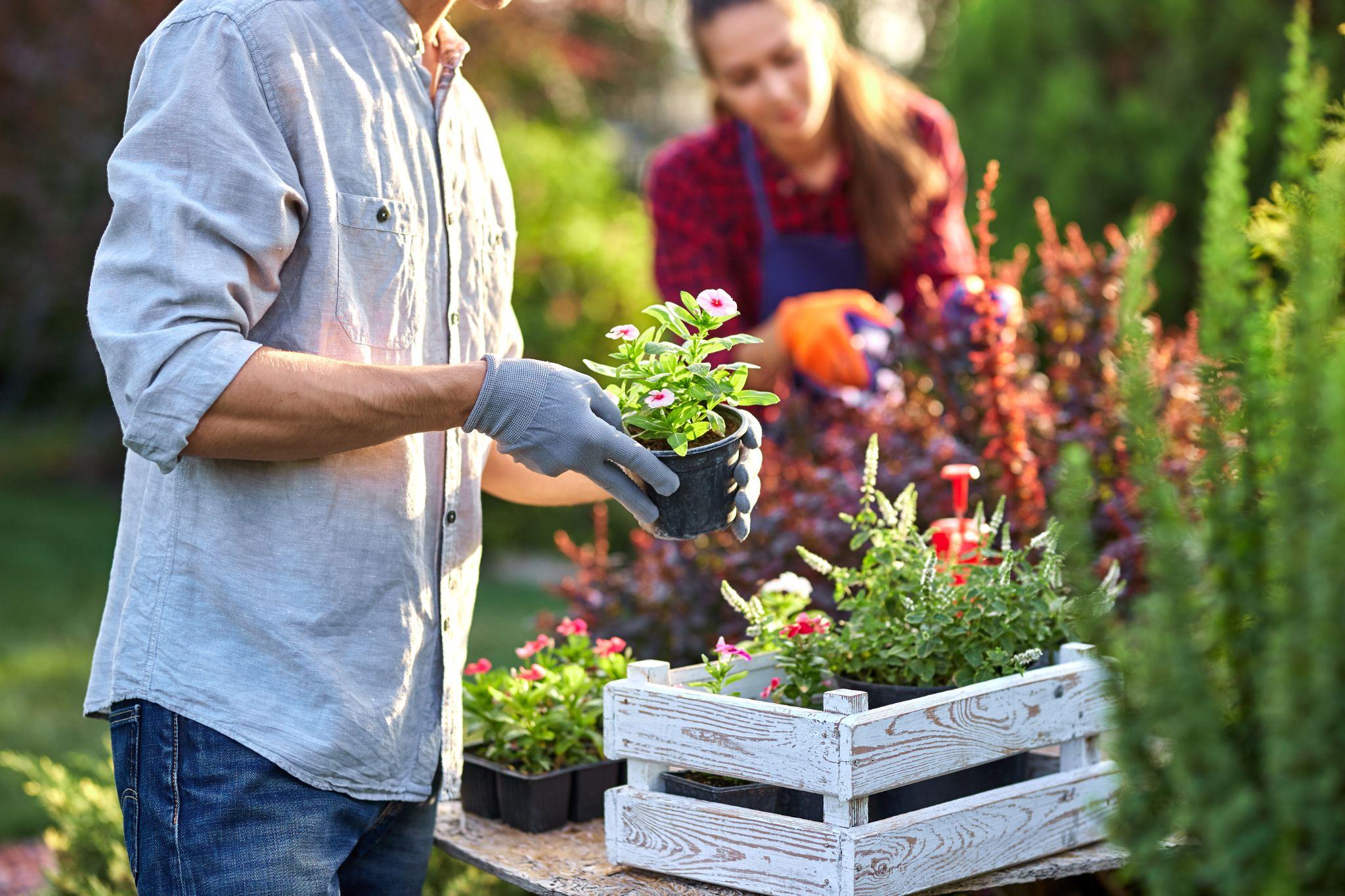Recovering from addiction is a transformative journey, and while the road ahead may feel uncertain, it’s also filled with new possibilities. As you embrace a life free from substance dependence, you’re presented with an opportunity to create a space for growth—both physically and emotionally. One way to nourish this growth is through gardening.
Gardening offers a powerful path for those in recovery. Plants provide a therapeutic connection to nature through biophilia—humanity’s innate biological and emotional bond. Engaging with plants evokes calming, joyful, and comforting feelings rooted in our history of relying on nature for survival. Gardening harnesses this inherent power, helping to rebuild a fulfilling and lasting life in recovery.
Below, let’s explore the benefits of gardening for mental health.
The Relationship Between Gardening and Mental Health
Why is gardening so beneficial for mental and emotional well-being, especially for those in recovery? Here’s a breakdown of the key psychological aspects:
Gardening as a Stress Reliever
Stress is a major relapse trigger, so managing it is crucial. What if stress relief could be as simple as digging in the dirt? Studies show gardening reduces cortisol—the stress hormone—and boosts mood.1
Gardening as a Mood Booster
Immersing yourself in nature and tending to plants can help lift your spirits. Exposure to sunlight, gentle exercise, and the meditative act of “tilling the soil” can reduce symptoms of depression and anxiety.2
Gardening for Purpose
Gardening offers a powerful way to reclaim your sense of purpose—by creating and sustaining life. Planting, nurturing, and harvesting require dedication, providing structure and meaning to your days. Get out of bed with a renewed sense of purpose, reduce feelings of hopelessness, and supercharge your motivation to stay sober!
Gardening as “Green Exercise”
Research from the University of Essex highlights the therapeutic power of “green exercise.” In one study, participants reported enhanced mood and wellbeing after engaging in outdoor activities surrounded by greenery.3
Gardening to Build Healthy Habits
Swapping destructive habits for constructive ones is one of the most crucial aspects of addiction recovery. Gardening benefits include a positive, grounding daily routine, encouraging consistency and self-discipline. Caring for plants mirrors the essential act of self-care, teaching you patience and the importance of nurturing yourself.
Gardening to Create Connection
Addiction often destroys relationships, making rebuilding crucial. Gardening provides a natural way to reconnect, creating new friendships through community gardens, clubs, and sharing your harvest.
Getting Started With Your Garden
If you’re new to gardening, it’s easier than it seems. Here’s how to begin:
- Begin with simplicity. Use pots with good drainage and nutrient-rich soil in a sunny spot. Try easy-to-grow herbs like basil, chives, or cilantro.
- Pick plants for your outdoor space. Choose plants suited to your climate. Consider hardy options like zinnias, sunflowers, or oregano.
- Start with easy vegetables. Grow simple crops like radishes, lettuce, or green beans—great for beginners.
- Develop a daily routine. Set aside time each day for watering, pruning, and care. Consistency helps build a sense of fulfillment.
- Get support from others. Join local gardening groups or forums to connect with others for advice and encouragement.
Enjoy the rewarding journey of growing your garden!

Gardening: A Journey of Endless Possibilities!
You may not feel drawn to gardening at first. Perhaps you dismiss it as a pastime only for retirees with abundant free time. But whether you’re a frustrated architect, an aspiring painter, or someone who finds peace in the sound of flowing water, there’s a perfect gardening path waiting to enrich your recovery journey.
Vegetable Gardens
If you’re someone who finds meaning in practical creativity, a vegetable garden might be your perfect outlet. There’s something deeply rewarding about growing your own food—from tiny seeds to vibrant produce, each step reflects progress and transformation. Watching vegetables ripen under your care offers a quiet, steady reminder of what’s possible with patience and dedication. Plus, preparing meals with your own harvest turns everyday nourishment into a celebration of your growth.
Community Gardens
For those seeking connection and a sense of shared purpose, community gardens provide a powerful space to rebuild relationships. These collective spaces bring people together—whether it’s planting, harvesting, or just exchanging stories between garden rows. In recovery, it’s easy to feel isolated, but in a community garden, you’re reminded that healing doesn’t have to be a solo effort. It’s a space where mutual support blooms right alongside the tomatoes and sunflowers.
Zen Gardens
Inspired by Japanese culture, Zen gardens offer serene, meditative spaces. Fine gravel or sand becomes a canvas, with patterns raked to symbolize movement. Meaningful elements like rocks or stones can represent personal milestones, perhaps a mountain you climbed, evoking freedom and cherished memories. This practice inspires reflection and nurtures aspirations throughout your recovery journey.
Cottage Gardens
If you love sitting outside with a good novel, consider a charming cottage garden—a whimsical blend of colorful blooms like roses, delphiniums, lavender, peonies, and daisies, or whatever palette aligns with your vision. The air, alive with floral scents and dancing butterflies, makes cottage gardens a joyful, peaceful sanctuary that’s both calming and uplifting.
Water Gardens
A water garden, featuring a pond, plants, and a fountain, offers a restorative retreat for those in recovery. The soothing sound of flowing water creates a tranquil backdrop, while the reflective surface and lush greenery of aquatic plants—such as water lilies, lotuses, or irises—add visual serenity.
Whatever garden you choose to create, trust that it will become a path to healing and growth as you progress in recovery.
FAQs
What are the mental benefits of gardening?
Gardening cultivates mindfulness, reduces anxiety, and promotes psychological health by connecting you with nature’s rhythms.
How can gardening be therapeutic?
It can help reduce stress, enhance focus, and offer a sense of accomplishment through calming, repetitive tasks.
Find a Peaceful Way Forward With Lumina Recovery
By choosing Lumina Recovery, you’re investing in yourself and your future. With your well-being as our top priority, we offer evidence-based therapy options and a holistic approach to treatment in a peaceful, calming environment designed for your healing. Our compassionate team will support you every step of the way, helping you reintegrate fully.
Call us today for the guidance and support you deserve. We’re only a phone call away.
Sources:
- Van Den Berg AE, Custers MH. Gardening promotes neuroendocrine and affective restoration from stress. J Health Psychol. 2011 Jan;16(1):3-11. doi: 10.1177/1359105310365577.
- Mayo Clinic. Dig into the benefits of gardening.
- Rogerson M, Wood C, Pretty J, et al. Regular doses of nature: The efficacy of green exercise interventions for mental wellbeing. Int J Environ Res Public Health. 2020 May;17(5):1526. doi: 10.3390/ijerph17051526.


